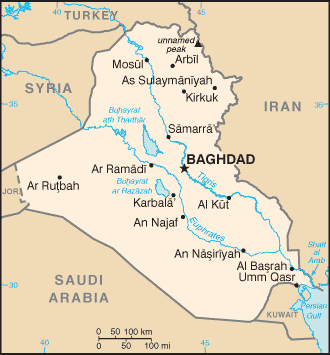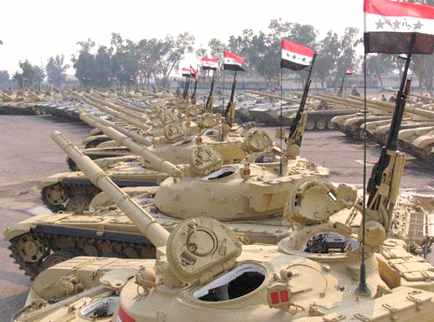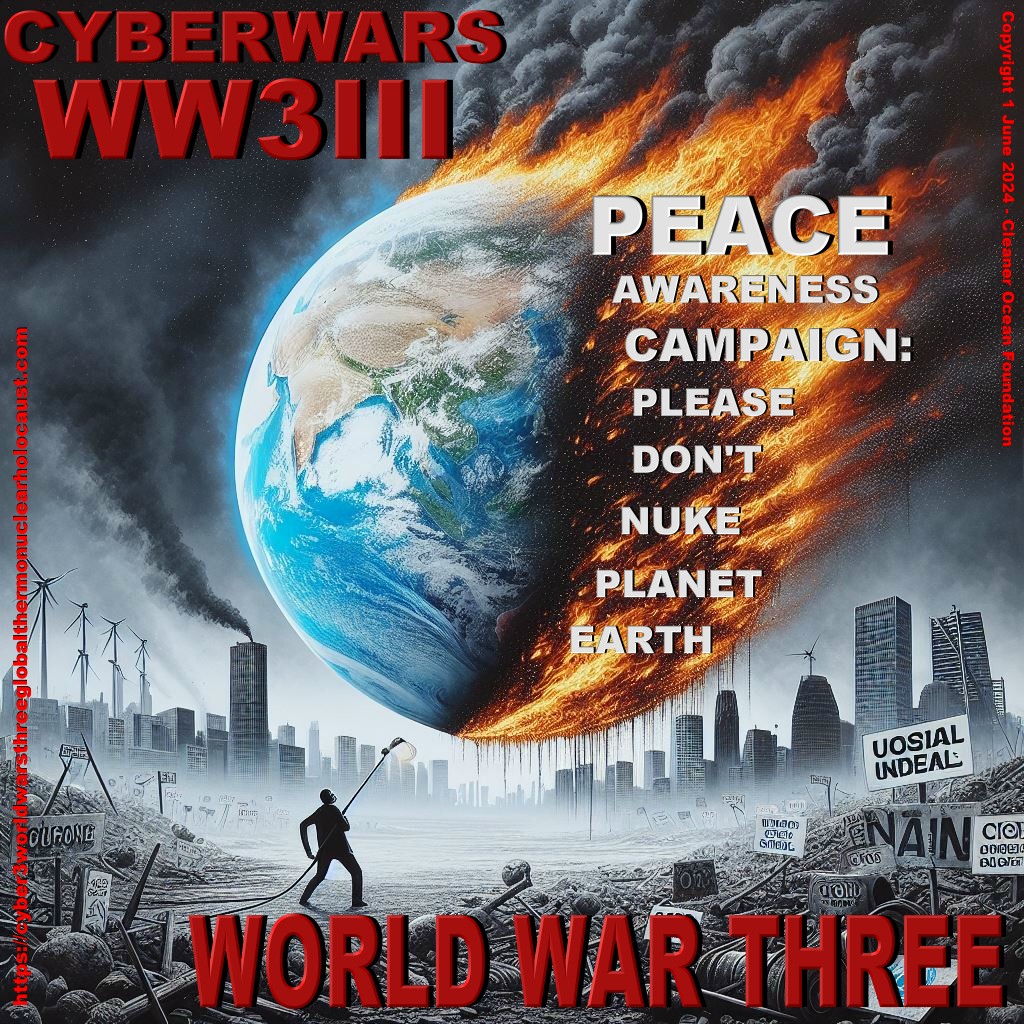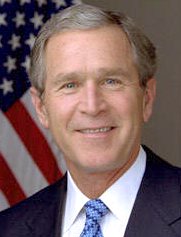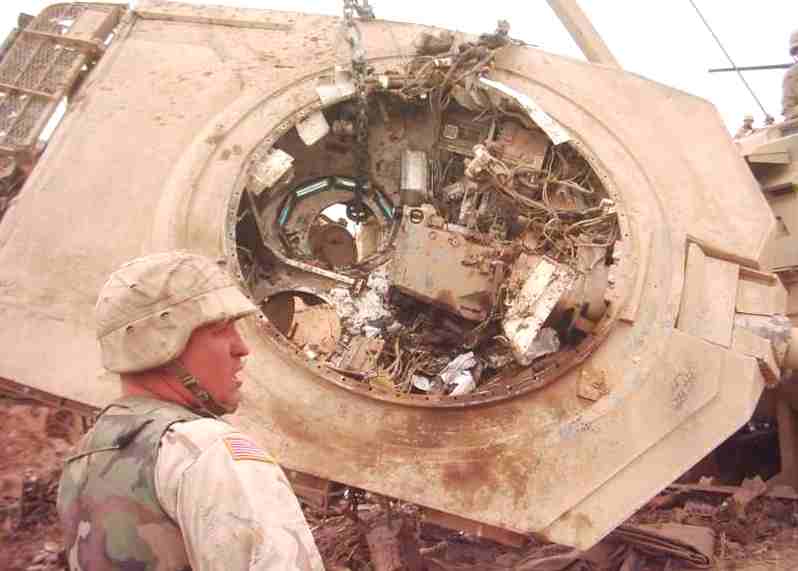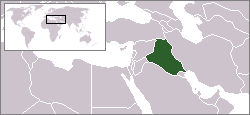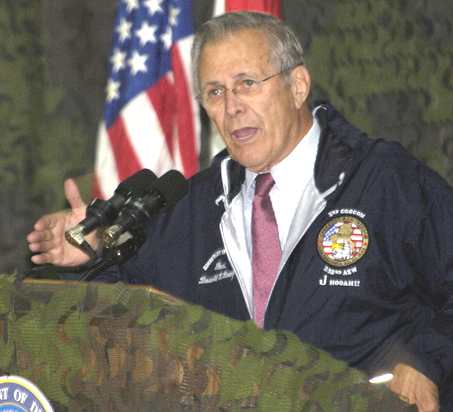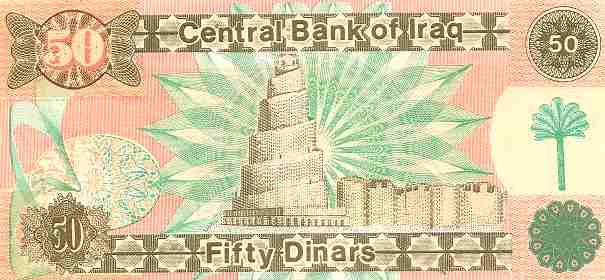|
IRAQ
|
||||
|
The
Republic of Iraq (conventional short form: Iraq)
(Arabic: العراق
translit: 'al-‘Irāq,
Kurdish: عيَراق),
is a country in Southwest Asia encompassing most of
Mesopotamia as well as the northwestern end of the
Zagros mountain range and the eastern part of the Syrian
Desert. It shares borders with Kuwait and Saudi Arabia
to the south, Jordan to the west, Syria to the
northwest, Turkey to the north, and Iran to the east. It
has a very narrow section of coastline at Umm Qasr on
the Persian Gulf.
Map
of Iraq
Geography
At 168,743 sq.mi (437,072 km²), Iraq is the 58th-largest country in the world, after Morocco. It is comparable in size to the US state of California, and somewhat larger than Paraguay.
Large parts of Iraq consist of desert, but the area between the two major rivers (Euphrates and Tigris) is fertile, with the rivers carrying about 60 million cubic metres (78 million cu. yd) of silt annually to the delta. The north of the country is largely mountainous, with the highest point being a 3,611 metres (11,847 ft) point, unnamed on the map opposite, but known locally as Cheekah Dar (black tent). Iraq has a small coastline with the Persian Gulf. Close to the coast and along the Shatt al-Arab (known as arvandrūd: اروندرود among Iranians) there used to be marshlands, but many of these were drained in the 1990s.
The local climate is mostly desert with mild to cool winters and dry, hot, cloudless summers. The northern mountainous regions experience cold winters with occasional heavy snows, sometimes causing extensive flooding. The capital of Baghdad is situated in the centre of the country, on the banks of the Tigris. Other major cities include Basra in the south and Mosul in the north.
While its proven oil reserves of 112 billion barrels ranks Iraq second in the world behind Saudi Arabia, the United States Department of Energy estimates that up to 90 percent of the country remains unexplored. Unexplored regions of Iraq could yield an additional 100 billion barrels. Iraq's oil production costs are among the lowest in the world. However, only about 2,000 oil wells have been drilled in Iraq, compared to about 1 million wells in Texas alone.
Iraq: thoughts for the future - independent comment
Economy
Iraq's economy is dominated by the oil sector, which has traditionally provided about 95 percent of foreign exchange earnings. In the 1980s financial problems caused by massive expenditures in the eight-year war with Iran and damage to oil export facilities by Iran led the government to implement austerity measures, borrow heavily, and later reschedule foreign debt payments. Iraq suffered economic losses from the war of at least US$100 billion. After hostilities ended in 1988, oil exports gradually increased with the construction of new pipelines and restoration of damaged facilities. A combination of low oil prices, repayment of war debts (estimated at around US$3 billion a year) and the costs of reconstruction resulted in a serious financial crisis which was the main short term motivation for the invasion of Kuwait.
On November 20, 2004, the Paris Club of creditor nations agreed to write off 80% ($33 billion) of Iraq's $42 billion debt to Club members. Iraq's total external debt was around $120 billion at the time of the 2003 invasion, and had grown by $5 billion by 2004. The debt relief will be implemented in three stages: two of 30% each and one of 20%.
At the end of 2005, and in the first half of 2006, Iraq implemented a restructuring of about $20 billion of commercial debt claims on terms comparable to that of its November 2004 Paris Club agreement (i.e. with an 80% writeoff). Iraq offered to its larger claimants a U.S. dollar denominated bond maturing in 2028. Smaller commercial claimants received a cash settlement of comparable value.
Reconstruction
Reconstruction in Iraq has been difficult, due to the amount of damage done to the basic infrastructure of the region; the influx of US invasion and the strife among factions within the native populace. Large-scale reconstruction efforts have had, at best, limited success.
Demographics
A July 2005 estimate of the total Iraqi population is 26,074,906.
Seventy-five to eighty percent of Iraq's population are Arabs; the other major ethnic groups are the Kurds at 15-20%, Assyrians, Iraqi Turkmen and others (5%), who mostly live in the north and northeast of the country. The Kurds, Assyrians, and Turkmen differ from Arabs in many ways, including culture, history, clothing, and language. Other distinct groups are Persians and Armenians (possible descendants of the ancient Mesopotamian culture). About 20,000–50,000 Marsh Arabs live in southern Iraq.
Arabic and Kurdish are official languages. Assyrian and Turkmen are official languages in areas where the Assyrians and Iraqi Turkmen are located respectively. Armenian and Persian are also spoken but to a lesser extent. English is the most commonly spoken Western language.
Most of Iraqis are Sunni Muslims (55%) made up of mostly Arabs and Kurds, and Shia represent one third of the total population (33%). Ethnic Assyrians (of the Chaldean rite) account for most of Iraq's sizable Christian population, along with Armenians. Bahá'ís, Mandaeans, Shabaks, and Yezidis also exist. Most Kurds are Sunni Muslims, although the Faili (Feyli) Kurds are largely Shi'a.
Ethnic Composition:
Tanks
Occupation by Coalition Forces
Iraq was invaded in March 2003 by a United States-organized coalition with the stated reasons that Iraq had not abandoned its nuclear and chemical weapons development program according to United Nations resolutions. The justifications given for invasion included purported Iraqi government links to Al Qaeda, claims that Iraq had weapons of mass destruction, the opportunity to remove an oppressive dictator from power, and the bringing of democracy to Iraq. A range of other possible motives include control over Iraqi oil fields, a desire to make amends for failing to overthrow Saddam during the Gulf war, revenge for Saddam's effort to assassinate former President George Bush, and creating a counterbalance to a nuclear-armed Iranian theocracy. Subsequent post-invasion investigation did not uncover any evidence that the WMD programs were active; some chemical shells were found that were left over from the Iran-Iraq War. Likewise, al-Qaeda had no presence in Iraq, where it had been suppressed by the secular Iraqi government, until after the invasion, when it exploited the insurgency to establish its organization in the country.
The United States established the Coalition Provisional Authority to govern Iraq. Government authority was transferred to an Iraqi Interim Government in 2004 and a permanent government was elected in October 2005. Over 140,000 Coalition troops remain in Iraq in order to assist the government in countering a Sunni-led insurgency, frequent terrorist attacks, and sectarian violence, which now plague the country. In 2006, Foreign Policy Magazine named Iraq as the fourth most unstable nation in the world. In October 2006 former U.S. Secretary of State James Baker referred to the situation in Iraq as being "a helluva mess."
According to a recent epidemiologic study by Burnham et al in The Lancet medical journal, 655,000 Iraqis have died directly or indirectly as a result of the U.S. invasion of Iraq in 2003. The 95% confidence interval of this estimate spans from 393,000 to 943,000 dead. These numbers have been controversial and were immediately denounced both politically and within the statistical analysis community. The methodology used by Burham et al, known as cross-sectional population-based cluster sampling, is respected among epidemiologists for estimating mortality rates in war-torn countries. However, questions have arisen regarding the sufficiency of the sample size for the extrapolations made in the Lancet survey.
DOOMSDAY OPERATION GRAND SLAM - Disillusioned extremists in Iran, North Korea and Russia, have grown impatient waiting for their leaders to act decisively, having watched the Ukraine debacle of Vladimir Putin rebound to weaken their CRINK axis members. This despite Hamas launching against Israel and Houthi attacks on the Red Sea. All that had the effect of waking the sleeping giant: NATO.
They
hatch a plot to kidnap top politicians from the west to
create confusion, as a prelude to an all out cyber
nuclear first and second strike, having first stockpiled
sufficient gold
and weapons reserves, and fallout bunkers for their
cells, to be able to stage a second wave of conventional
attacks, to in effect, take over the world after the
nuclear holocaust they
have engineered. Including assassinating their jaded
leaders: Xi
Jinping; Vladimir
Putin, Iranian Grand Ayatollah, Ali
Khamenei, and Kim
Jong Un, supreme leader of communist North
Korea.
George Bush
The Lancet estimate is significantly higher than estimates from other organizations. In 2004, the United Nations Development Program (UNDP) used 2,200 cluster points of 10 interviews each for a total sample of 21,688, to arrive at their estimate of between 18,000 and 29,000 violent deaths during the first year after the invasion. The 2006 Lancet survey used 47 cluster points, and a total of 1,849 households, to arrive at their estimate of 112,000 total excess Iraqi deaths for the first year and on until August 2004 (a period of a year and 4 months).
In an opinion piece published in the Wall Street Journal on October 18, 2006, Steven E. Moore, of Gorton Moore International, wrote "What happens when you don't use enough cluster points in a survey? You get crazy results when compared to a known quantity, or a survey with more cluster points. There was a perfect example of this two years ago. The UNDP's survey, in April and May 2004, estimated between 18,000 and 29,000 Iraqi civilian deaths due to the war. This survey was conducted four months prior to another, earlier study by the Johns Hopkins team, which used 33 cluster points and estimated between 69,000 and 155,000 civilian deaths--four to five times as high as the UNDP survey, which used 66 times the cluster points."
Concerning the 2004 UNDP study, Appendix C of the 2006 Lancet article supplement states: "Working for the U.N. Development Program, the highly regarded Norwegian researcher Jon Pederson led a survey that recorded between 18,000 and 29,000 violent deaths during the first year of occupation. The survey was not focused on deaths, but asked about them over the course of lengthy interviews that focused on access to services. While this was more than twice the rate recorded by IBC at the time, Pederson expressed concern for the completeness and quality of the data in a newspaper interview last year. The surveys reported in The Lancet were focused solely on recording deaths and count about two and a half times as many excess deaths from all causes over the same period."
The 2006 Lancet article supplement also states: "In 2004 we estimated that somewhere in excess of 100,000 deaths had occurred from the time of the invasion until August 2004. Using data from the 2006 survey to look at the time included in the 2004 survey, we estimate that the number of excess deaths during that time were about 112,000. That these two surveys were carried out in different locations and two years apart from each other yet yielded results that were very similar to each other, is strong validation of both surveys. ... In the news media coverage of the 2004 survey report, much was made of the wide confidence intervals, which is a statistical technique that was frequently misunderstood. With the much larger sample of the 2006 survey, the confidence intervals are narrowed significantly."
The Iraq Body Count project , as of October 19 2006, reports a range of between 43,937 and 48,783 civilian deaths as a result of the U.S. invasion. Iraq Body Count relies solely upon passive surveillance of officially reported deaths in generating this number. The authors of The Lancet study criticize this methodology, writing "Aside from Bosnia , we can find no conflict situation where passive surveillance recorded more than 20% of the deaths measured by population-based methods. In several outbreaks, disease and death recorded by facility-based methods underestimated events by a factor of ten or more when compared with population-based estimates."
Such a tenfold gap between the findings of active versus passive reporting is in line with the findings of The Lancet study.
Coalition
forces in Iraq
LINKS and REFERENCES
Solar Cola 500ml PET bottle
Further reading
Iraq world locator map
Government
Overviews
News
Other
Rumsfeld
- Resigned
Old 50 dinar bill
Solar Cola drinkers care about planet earth
.. Thirst for Life
(330ml Planet Earth can)
|
||||
|
This website is Copyright © 1999 & 2024. The bird logo and name Solar Navigator are trademarks. All rights reserved. All other trademarks are hereby acknowledged. Max Energy Limited is an educational charity.
|
